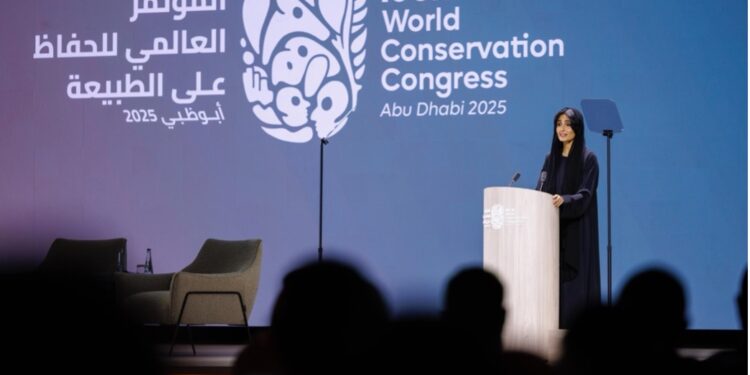Last Thursday, thousands of representatives from world governments, civil society, Indigenous peoples’ groups, academia, the scientific community, and businesses came together for the International Union for Conservation of Nature (IUCN) World Conservation Congress. This year’s Congress, held in the Emirati capital Abu Dhabi, focused on transformative conservation and innovation.
The IUCN World Conservation Congress is the leading international forum for nature conservation, with more than 10,000 attendees and 1,400 member organizations this year alone. Resolutions, which are democratically passed by the Member Assembly, have a global impact, especially as 139 draft resolutions, many of which were preliminarily accepted online, are expected to pass by electronic vote or live discussion.
Thursday’s Opening Ceremony, aimed to “revitalize[e] global governance for nature and people,” highlighting the need for multilateral cooperation in an increasingly polarized world. This mission, to create stronger governance through international structures, is one that the National Whistleblower Center (NWC) strongly endorses. Healthy whistleblower protections and incentives are essential to combat transnational environmental crimes.
Scott Hajost, NWC’s Senior Environmental Policy Adviser, led NWC’s efforts in the Congress to promote whistleblowers.
Whistleblowers are key to calling out corporations and governments that engage in illegal fishing, illegal logging, wildlife trafficking, and habitat destruction. On the high seas, whistleblowers act as a deterrent to ocean pollution, illegal fishing, and illegal deep-sea mining.
The Congress passed three resolutions that promote whistleblower protections and incentivization: Resolution 48/52 on “Crimes that Affect the Environment;” Resolution 49 on “Strengthening safe civic spaces to fulfil the Kunming-Montreal Global Biodiversity Framework;” and Resolution 126 on “Advancing citizen science to support and democratize conservation.” The NWC is a co-sponsor of resolutions 48/52 and 126.
Empirical evidence shows that whistleblower oversight structures that include award laws are highly effective at deterring economic crime—including wildlife trafficking and illegal habitat destruction.
The IUCN World Conservation Congress has strong potential for being a turning point in establishing robust international environmental legislation.
“The decisions taken this week will determine whether we meet the moment with courage and cooperation. If we succeed, this Congress will show that science, inclusion, and shared purpose can still guide humanity toward a future where both people and nature thrive,” said IUCN President, Her Excellency Razan Khalifa Al Mubarak.
As time ticks away on environmental progress, the IUCN Congress should be viewed with optimistic eyes. The potential whistleblower protections represent a pivotal moment for the international community to create effective deterrents to transnational environmental crime.


